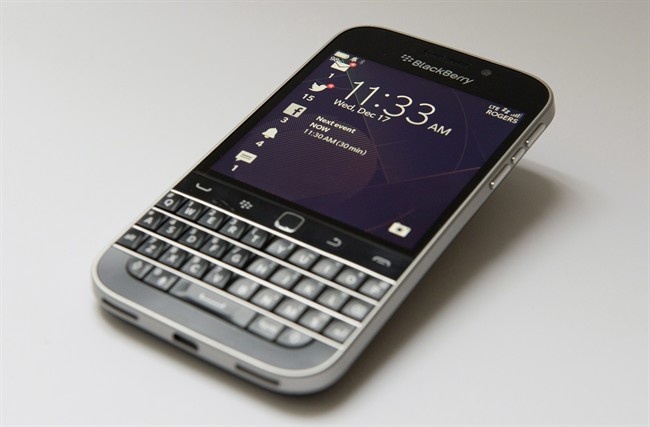A Canadian man who sold encrypted BlackBerry smartphones to criminals worldwide that enabled them to sell drugs and even plan murders while avoiding the prying eyes of law enforcement was sentenced Tuesday to nine years in prison.

Vincent Ramos, 41, of Richmond in the Vancouver area was sentenced Tuesday in federal court in San Diego. He pleaded guilty last fall to one count of racketeering conspiracy.
Ramos also was told to forfeit $80 million in earnings, which included homes, international bank account holdings, cryptocurrency and gold coins.
Ramos ran a company called Phantom Secure that offered gutted, uncrackable smartphones that, for a subscription, could send encrypted text messages through a secure network based in Panama and Hong Kong.
The company also could wipe the phones remotely if they were seized.

Prosecutors said Ramos’ clients included the Sinaloa drug cartel of Mexico and a global drug-trafficking and illicit gambling organization run by former University of Southern California football player Owen Hanson. Hanson is serving a 21-year prison sentence.

Get daily National news
Other clients were Hells Angels in Australia who used them to co-ordinate several killings, authorities said. Ramos boasted about his wares after seeing a 2014 news report that said use of his encrypted devices by a suspect in one high-profile murder had hampered the investigation.
At least 7,000 of the phones were sold.
“The scope of this case is staggering,” Assistant U.S. Attorney Andrew Young said, calling Ramos’ clients “some of the most sophisticated criminals in the world using some of the most sophisticated technology in the world.”
WATCH: Fentanyl easily obtainable over the phone

It was the first U.S. conviction involving someone who provided encryption technology to criminal organizations. Four of Ramos’ co-defendants remain at large.
“I am sorry and accept responsibility for my actions that have led me here today,” Ramos told Judge William Hayes. He said he turned “a blind eye” to the use of his phones – which were marketed as a tool for business executives – for international drug sales.
But prosecutors said Ramos set up his system intentionally to block interception of criminal communications by law enforcement.
The anonymous clients used nicknames that included “leadslinger, The.cartel, The.killa, Elchapo66 and Knee-capper9,” the San Diego Union-Tribune reported.
READ MORE: FBI head calls encryption an ‘urgent public safety issue,’ but is it?
In a 2018 text message, Ramos urged an employee to get a brand new Range Rover “cuz I just closed a lot of business. This week man. Sinaloa cartel, that’s what’s up.”
Ramos was arrested last year in Washington state and his secure communications network was dismantled.
Some 250 law enforcement agents from the U.S, Canada and Australia reportedly were involved in the investigation.
- ‘I couldn’t stop crying’: Memorial grows for 5-year-old boy killed in home
- 6 cult leaders convicted of forcing kids to work unpaid or face ‘eternal hellfire’
- Arrests in Canada part of global takedown of criminal messaging app: police
- Associate of Frenchman on trial for mass rape admits to copycat abuse







Comments